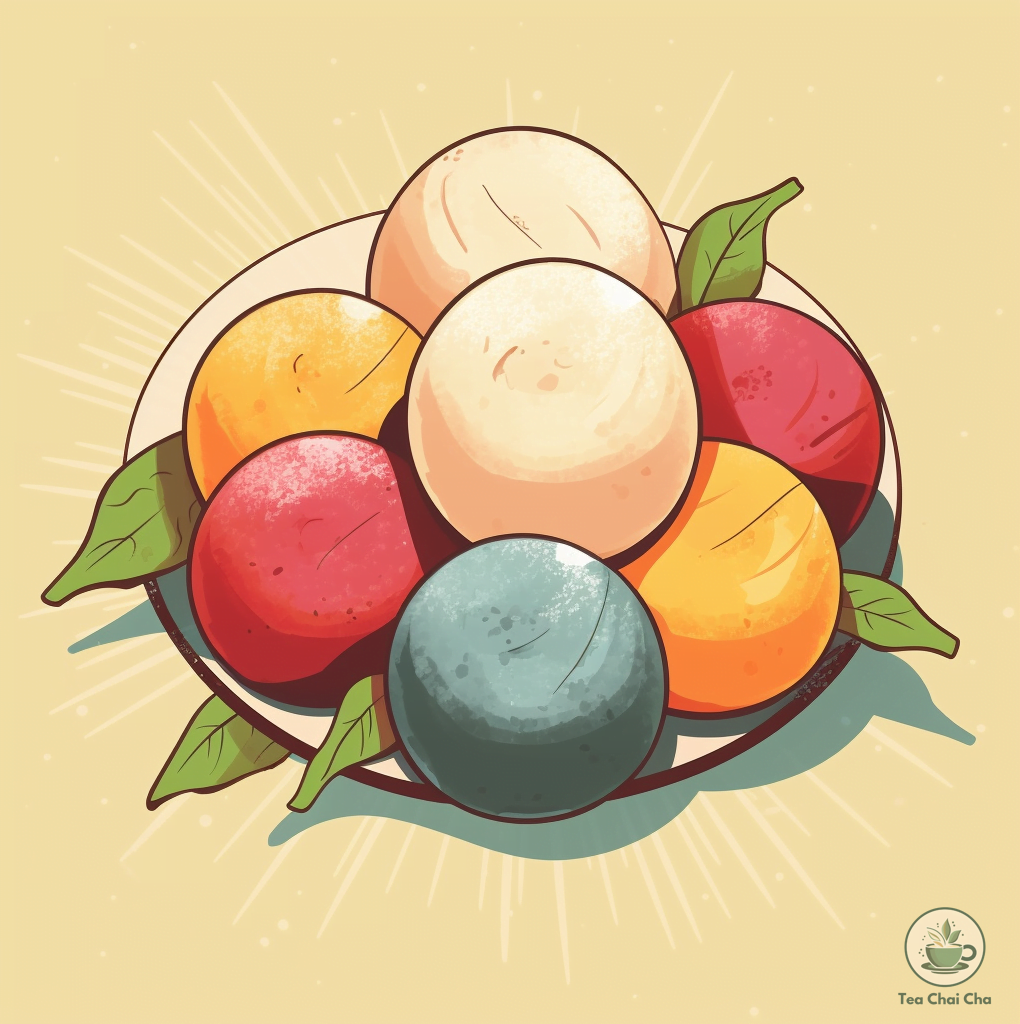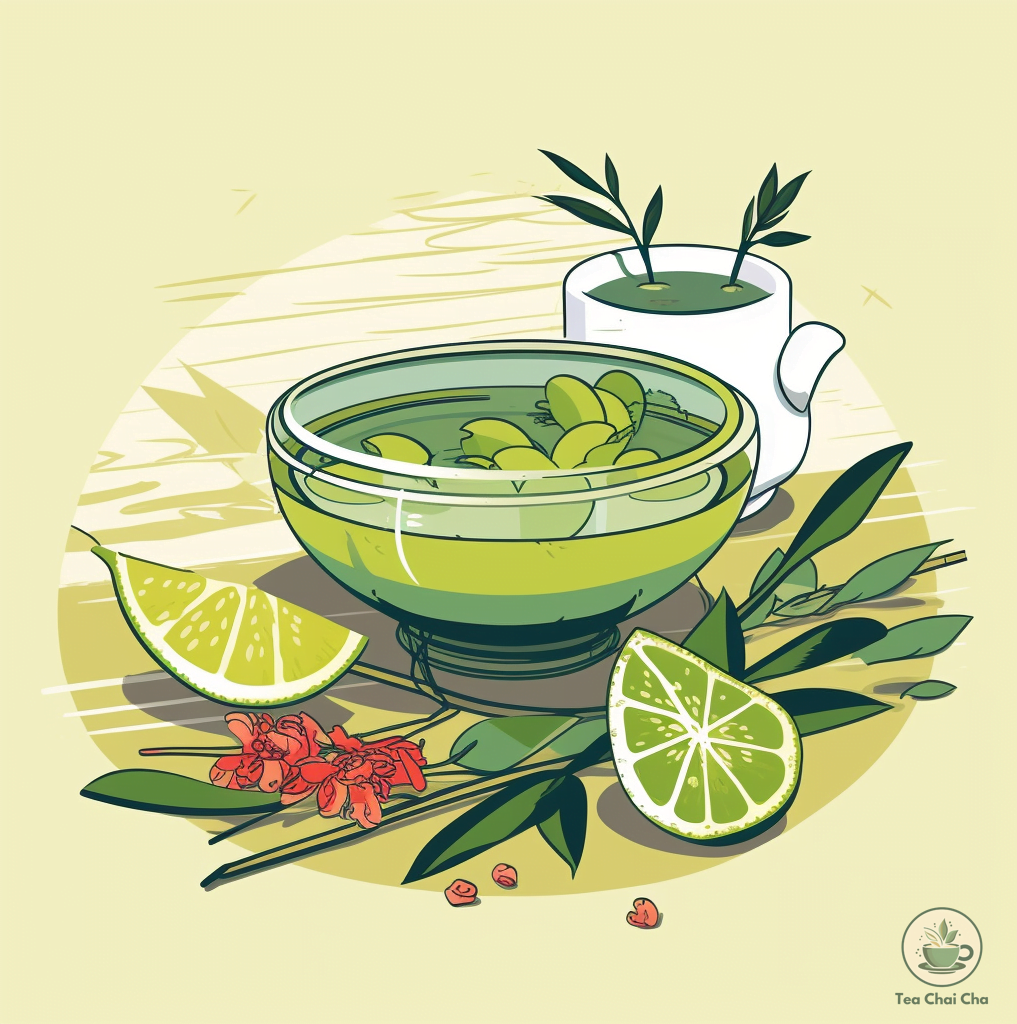Are you a fan of green tea and curious about whether green tea mochi contains caffeine?
Many of us who enjoy the subtle, earthy flavors of green tea are drawn to this delightful Japanese confection, but the caffeine factor is a topic worth exploring.
Green tea mochi, those chewy, bite-sized treats with a gooey center, are indeed infused with green tea flavor.
But, does green tea mochi have caffeine? Yes, green tea mochi has caffeine in it!
But how much caffeine does it have?
Do these chewy bites carry the same caffeine punch as a traditional cup of green tea?
Let’s find out!
What Is Green Tea Mochi?
Green tea mochi is this fantastic Japanese treat that’s like a soft, chewy, and slightly green dessert.
The green part comes from green tea powder, which gives it that unique flavor.
Where’s it Famous?
In Japan, mochi has a big role in traditions and celebrations.
They even have ceremonies for making it.
During New Year’s, they put mochi in their homes for good luck.
But it’s also becoming a hit in places with Asian communities and even in some fancy shops worldwide.
What Makes it Special?
Green tea mochi is special because it tastes like sweet green tea.
It’s soft like a pillow but has a little chew to it.
Inside, you might find yummy stuff like red bean paste or matcha cream.
Different Types
There are lots of types of mochi.
Some have ice cream inside, some are wrapped in cherry blossom leaves, and others are filled with sweet red bean paste.
Each one has its own charm.
Where to Get It
You can find green tea mochi in Japanese stores, Asian markets, and sometimes even in fancy food shops.
It’s not just for Japanese food lovers; anyone can enjoy its unique taste and texture.

What Is in Green Tea Mochi?
Mochi is delicious. Here’s what your green tea mochi is particularly made of:
1. Glutinous Rice Flour
The heart and soul of green tea mochi is glutinous rice flour.
It’s the main ingredient that gives mochi its chewy, soft texture.
This flour is different from regular rice flour, as it has a higher starch content, which makes it wonderfully stretchy.
2. Green Tea Powder
Green tea mochi gets its delightful green color and the distinct taste of green tea from green tea powder.
This powder is made from finely ground green tea leaves, and it’s responsible for the unique flavor that we all love.
3. Sugar
To sweeten the deal, sugar is added to the mix.
It balances out the slight bitterness of the green tea, making the mochi taste just right.
It’s the sweetness that keeps you coming back for more.
4. Water
Of course, you need water to bring everything together.
It’s used to mix the ingredients and create the mochi dough. Simple, right?
5. Fillings (Optional)
Inside that lovely mochi exterior, you might find different fillings like sweet red bean paste, matcha cream, or other creative flavors.
These fillings add an extra layer of deliciousness to the mochi.
Does Matcha Mochi Have Caffeine?
Green tea mochi typically contains a moderate amount of caffeine, which primarily comes from the green tea powder used in its preparation.
To give you an idea, a teaspoon of green tea powder (matcha) contains approximately 40-70 milligrams of caffeine.
The exact caffeine content in a piece of green tea mochi can vary depending on factors like the amount of green tea powder used and the size of the mochi.
Let’s say if one teaspoon of matcha powder is used to make six mochi pieces, and matcha powder contains approximately 70 milligrams of caffeine per teaspoon, then each mochi piece would contain roughly:
70 mg (caffeine in 1 tsp of matcha powder) / 6 mochi pieces = approximately 11.67 mg of caffeine per mochi piece.
So, in this scenario, each mochi piece would contain approximately 11.67 milligrams of caffeine.
While green tea mochi does have caffeine, it’s not an exceptionally high amount.

Caffeine in Green Tea Mochi vs. Green Tea
Here’s a simple comparison to learn if green tea mochi has more caffeine or if green tea wins the battle!
Green Tea
- A standard cup of brewed green tea typically contains about 30-50 milligrams of caffeine.
- The caffeine content can vary based on factors such as the type of green tea (sencha, matcha, etc.), brewing time, and water temperature.
- Green tea is known for its moderate caffeine content, which provides a gentle energy boost without the jitters associated with stronger caffeinated beverages.
Green Tea Mochi
- Green tea mochi contains caffeine, primarily derived from the green tea powder (matcha) used to flavor it.
- The caffeine content in a single piece of green tea mochi can vary depending on factors like the amount of green tea powder used and the size of the mochi.
- On average, a piece of matcha green tea mochi may contain around 11-15 milligrams of caffeine if made with a teaspoon of green tea powder.
- The caffeine content in green tea mochi is less than a small cup of brewed green tea.
Tidbit!
You would need to consume approximately 3 to 4 pieces of green matcha tea mochi to get a similar amount of caffeine as you would from one cup of green tea.
Recommended Caffeine Intake
According to the U.S. Food and Drug Administration (FDA), a typical adult’s recommended daily caffeine intake is around 400 milligrams.
It is roughly equivalent to four 8-ounce cups of brewed coffee or ten 8-ounce cups of green tea.
However, individual sensitivities to caffeine can vary.
So, it’s important to monitor your consumption and make choices that suit your tolerance and health needs.
How Many Green Tea Mochis Can I Have?
It depends on your personal preference and how much caffeine you’re comfortable with.
Each green tea (matcha) mochi usually has around 11-15 milligrams of caffeine, which is much less than a cup of coffee (about 95 milligrams).
If you’re sensitive to caffeine or just want to enjoy them without feeling jittery, start with one or two pieces.
That’s like having a small sip of coffee in terms of caffeine.
But if you’re okay with a bit more caffeine, you could have a few more, maybe up to four or five pieces.
That’s still less caffeine than a cup of coffee.
7 Tips to Reduce Caffeine in Green Tea Mochi
You know, digging into green tea mochi can be a real treat.
They’ve got that amazing taste and that soft, chewy texture that’s hard to resist.
But hey, it’s easy to get carried away, right?
Don’t worry; I’ve got your back.
If you want to enjoy these little delights while keeping your caffeine in check, let’s talk about some down-to-earth tips.
1. Lower-Caffeine Green Tea Powders
When selecting green tea powders, opt for those with less caffeine content.
Some options include:
- Hojicha Powder: Hojicha is roasted green tea and generally contains less caffeine than regular green tea.
- Genmaicha Powder: Genmaicha combines green tea with roasted brown rice, resulting in a milder caffeine profile.
2. Choose Decaffeinated Green Tea Mochi
Look for decaffeinated green tea mochi, which is made using green tea that has had most of its caffeine removed.
It’s a great option if you’re caffeine-sensitive.
3. Use Less Green Tea Powder
If you make green tea mochi at home, you can control the amount of green tea powder you use.
Simply use less to reduce the caffeine content.
4. Opt for Different Fillings
Green tea mochi often contains matcha-flavored fillings.
But you can choose mochi with different fillings that are caffeine-free, such as fruit fillings or sweet potato.
5. Enjoy in Moderation
Limit the number of green tea mochi pieces you consume in one sitting.
This can help keep your overall caffeine intake in check.
6. Eat It Earlier in the Day
Consume green tea mochi earlier in the day to allow your body more time to process the caffeine before bedtime.
7. Pair with Caffeine-Free Tea
Enjoy your green tea mochi with a cup of caffeine-free herbal tea.
This can help balance your caffeine intake while still savoring the flavor.
Matcha Green Tea Ice Cream Caffeine
If you’re wondering whether green tea ice cream contains caffeine like matcha mochi, the answer is :
Yes, matcha green tea ice cream have caffeine.
In fact, it’s quite surprising how much caffeine you can find in this creamy frozen treat.
Typically, the amount of caffeine in green tea ice cream can vary slightly depending on the brand, but on average, there’s about 70 mg of caffeine per teaspoon of matcha powder used in the ice cream.
So, if you’re savoring a generous scoop of this creamy, green tea-infused dessert, you’re definitely getting a caffeine boost along with that sweet and earthy flavor.
